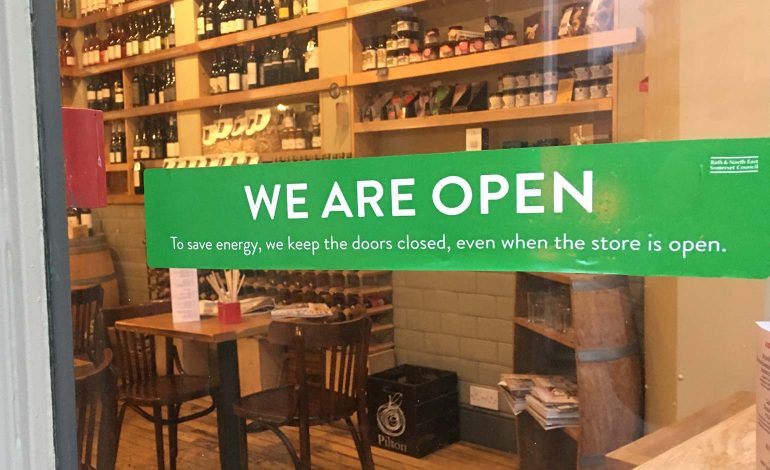What is movement-based social marketing, and why is it so important?

“Movement-based social marketing” is probably THE most important concept to understand if we want to solve climate change. To explain why, let’s start at the tail end and work backwards.
Marketing has been with us for as long as we have been humans: it’s the art of persuasion. Marketing is the act of convincing others to embrace an idea or a product. Even though we associate marketing nowadays with business and advertising, marketing is an extremely broad term that covers selling everything from apples to ideology. It is a powerful psychological force that targets individual values and choices in order to shape entire societies, economies, and ecosystems. Quite literally, everything around us is marketing, and marketing is everything.1
From a climate perspective, marketing has been an absolute disaster; starting with the early days of lifestyle marketing to support the growth of an oil-based consumer economy, and later in a far more deliberate and evil way as those with wealth and power started to use advocacy advertising and other social marketing techniques to sway public opinion. The climate movement has been woefully outgunned the whole way. How can a poorly-funded movement even begin to compete with a super-funded marketing machine designed to reinforce the status quo? We are a rag-tag group of scientists, policy wonks, and citizens trying to overthrow an empire with facts and protests while the other side is armed with all the latest tools in opinion warfare.
Understanding how pervasive marketing is, and its effect on public opinion and public policy, is the first step in developing an effective marketing strategy in support of climate action. Such a strategy has to be based on our strengths, it needs to render the anti-climate marketing irrelevant, and it needs to offer hope.
This leads us to the field of social marketing, which is aimed primarily at changing (or reinforcing) social values, attitudes, and behaviours:
- Values-based social marketing is often used by politicians and political parties to appeal to voters who are more easily swayed by values than logic.
- Social marketing is also used to target public attitudes on key policy issues, such as climate, race, immigration, guns, housing. Think “Safe cycling” versus “The war on cars,” or “fifteen-minute neighbourhoods” versus “affording your dream home.”
- Behavioural marketing is used to shift people behaviour patterns, such as to exercise more, eat vegetarian meals, or volunteer. Changing behaviours can often lead to changing attitudes and reinforcing values, and therefore behavioral marketing is often integral to fostering social change.
For the most part, the climate movement keeps throwing climate disaster information at the social media wall and we lament the fact that nothing is changing. I remember how Beth Savan, from the University of Toronto, once phrased it: “We used to think that if we gave people good information they would change their attitudes and, in turn, their behaviours. We now realize we had it completely backwards. If we can get people to try a new behaviour, and they like it, then they will continue to do it, and their attitudes will change to support their new behaviours.” In other words, if people try a vegatarian recipe that tastes great, they will make it again, and they will be more open to a vegetarian lifestyle. Or if people try riding a bike, or walking to school or work, and they feel healthier and happier for it, they will keep doing it and they will be more inclined to support walkable neighbourhoods and cycling infrastructure.
Put simply, implementing climate policy and solutions depends on deep, long-term public support. To achieve that level of support, we need a movement-wide approach to social marketing that promotes solutions people want and helps build bottom-up support for policies and investments that will improve our quality of life, even in the face of increased climate impacts.
There is a form of social marketing known as “community-based social marketing,”or CBSM, which has been popularized by the environmental psychologist Doug Mckenzie Mohr. CBSM focuses on effective program design to support behavioural change at a community level (local to national). In particular, it has helped governments design more effective programs for behavioural change. CBSM helps improve the impact of marketing campaigns by large organizations and governments (local through national) to develop social marketing campaigns that support the public interest and common good.
But what if the marketing programs were developed across an entire movement, and not just a lead organization or government? Can we identify common objectives and messaging which can be readily adapted and adopted by groups around the world to promote solutions, behaviours, attitudes and common values? Which brings us to the concept of “movement-based social marketing.”
Here’s a simple example: the Doors Closed campaign. In 2005, I worked for the Conservation Council of Ontario, a small NGO. We were faced with the challenge of promoting electricity conservation as a public value through a low-budget community outreach campaign. Plus, our sponsors needed us to show tangible reductions through the campaign. At the time, there was a strong public outcry against stores that had their doors open during heat waves in order to attract customers. “Why should we conserve,” people asked, “when the stores are air-conditioning the sidewalks?” Our solution was a movement-based pro-cott campaign. We printed up posters for stores to post that said, “our door is closed, but we are open,” and we included local groups as a co-sponsor if they could canvass stores in their community. 5,000 posters were distributed by 24 organizations in 15 communities. Even better, the campaign was adapted and adopted in the United Kingdom and Netherlands.




Doors Closed was a small campaign, but it managed to bring community groups, businesses and business associations, and government agencies together to co-promote a simple solution that helped raise awareness of the importance of conservation. The key to success is not necessarily a bigger budget, it’s finding the right message, finding allies, sharing ideas and material, and, above all, promoting solutions that resonate with people.
So, to answer the questions at the beginning – movement-based social marketing is all of us selling what really matters. And this matters, because everything is marketing, and marketing is everything.
Notes
- Check out this half-hour episode of Under the Influence from advertiser Terry O’Reilly: “Hiding in Plain Sight.” It’s amazing how things we take for granted, like the how the term and attitudes to jay-walking are the result of marketing.
↩︎
